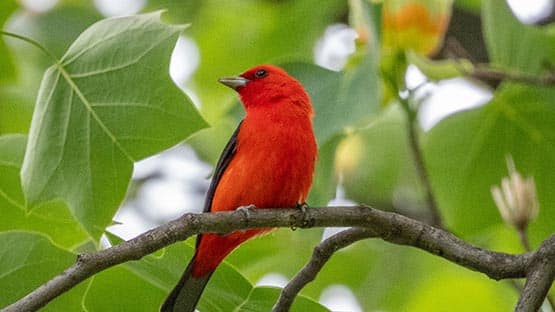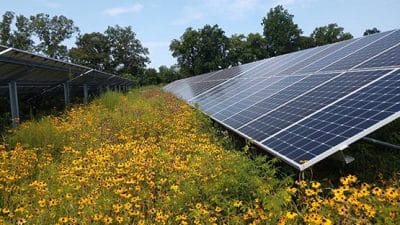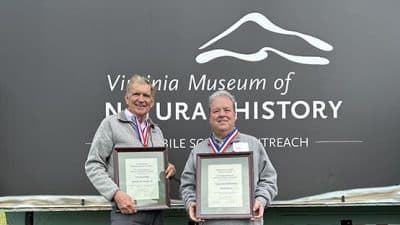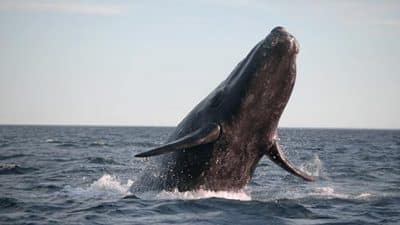
Maple syrup isn’t just for pancakes and waffles anymore; producers may also play a role in conservation and increasing the bird population.
A $2 million grant was awarded to the National Audubon Society to look at improving bird habitats by encouraging maple syrup producers to incorporate forest management practices that allow other trees and bushes to grow alongside sugar maples.
The National Audubon Society in partnership with Virginia Tech Associate Professor Ashley Dayer will look to establish a bird-friendly maple program.
The degradation of bird habitats in recent decades has led to a decline in bird populations, according to Virginia Tech.
“The future of maple-dominated forests, birds and other biodiversity and their ability to be resilient and adaptable to a changing climate relies on how private lands are managed,” said Dayer, whose research falls under her role in the Department of Fish and Wildlife Conservation. “We aim to understand how to empower small forest landowners to get involved and ensure that benefiting birds benefits their bottom line too.”
The project is funded through a U.S. Department of Agriculture Forest Service program that supports new markets to foster forest resilience.
Participating maple syrup producers will commit to dedicating at least one-fourth of their land to the growing of alternative tree species.
Maple producers who participate will be able to label their maple products “bird-friendly,” a designation that researchers hope will lead to market benefits for owners.
“Virginia Tech will play a key role in the project, evaluating landowner needs and addressing barriers to increased engagement,” said Dayer. “We will also develop and implement message testing with potential consumers of bird-friendly maple syrup to explore how to grow interest in this product.”
For Dayer, this research aligns with previous work she has done in helping to develop certification for bird-friendly coffee, which encourages tropical farmers to grow and harvest coffee under the canopies of mature trees, a critical need for both tropical and migratory bird species.
“As we’ve learned from other contexts, listening to landowners is the foundation of a successful private lands conservation project,” said Dayer. “Developing projects with them ensures that our work will have lasting benefits for people, habitats and birds.”










